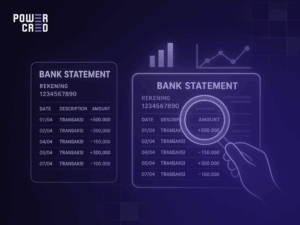In our first episode of PowerTalks, we spoke to Aditya Chintawar, the Chief Product Officer at Koinworks, a leading fintech platform in Indonesia. Aditya shared with us his expertise and some great insights on the digitization of Southeast Asia’s small businesses and how has digitalization impacted SME financing in the region.
Read on for some key takeaways from the insightful session or listen to the complete episode of PowerTalks here.
#1
As per government data, 30 million SMEs are expected to go digital by 2025, that’s 50% of total SMEs in Indonesia.
SMEs in Indonesia are rapidly digitising to keep up with their consumers going digital. Out of the 65 million SMEs in Indonesia, a bulk of these are home businesses or home entrepreneurs that either went digital during the pandemic or were set up during the pandemic itself and have been purely digital since day one.
#2
4 factors greatly contributed to the SMEs going digital: The consumers, home businesses, the Government and VCs.
- Consumers went digital at a rapid pace making it crucial for SMEs to go digital.
- Home businesses started selling online during the pandemic to be conveniently accessible to their customers and to increase their reach.
- Favourable government policies and support around digital payments and disbursals acted as a major catalyst.
- The influx of VC capital into the startup ecosystem to build tools to support digitisation.
#3
Data is as dumb as the person looking at it.
The digitisation of small businesses has resulted in an enormous digital footprint and the generation of a large amount of data that is underwritable. However, the outlook towards the data is more important than the data itself. If a lender is unable to find a trend or pattern in the data, the data extracted will be of no use to him for the purpose of underwriting. But, if a lender adds relevant intelligence to the data extracted, he may be able to successfully leverage the same data for actionable insights for underwriting small business customers.
#4
The 3 Prominent pain points that lenders face today: Data accessibility, Automation of data extraction and Data intelligence.
- Gaining seamless access to ethically sourced, authenticated data is a challenge.
- The data is widely spread across multiple platforms, in a raw and unstructured format. Manually extracting such data is resource-intensive and time-consuming.
- Lenders need to add layers of intelligence to make sense of the data being extracted for valuable insights that can help them make smarter decisions.
#5
Digitisation is ensuring more confidence in the SME financing ecosystem.
Prior disclosure regarding data usage, compliance with data security and user privacy regulations, ease of application and overall transparency in the lending process has helped build trust among SME borrowers. Digitisation has added more transparency, speed and convenience to the lending process, enhancing the overall confidence of SMEs. SMEs are now more willing to share their data to gain quick access to the credit needed to support their growth. Access to such underwritable data of SMEs helps improve approval rates, encouraging more loan applications and a reduced credit gap, fueling the growth of digitised small businesses.
Indonesia is witnessing rapid digitisation of its small businesses to keep up with their consumers going digital, and a resultant need for improved access to credit to support the growth of these small businesses. Financial service providers can improve access to credit to support digitised small businesses better by leveraging the data generated by their digital footprint.
To know how PowerCred helps financial service providers unlock the power of small business data to improve access to credit for these businesses, contact our team.
About PowerTalks
PowerTalks by PowerCred is a podcast where we discuss upcoming trends in Southeast Asia’s financial services ecosystem and the impact of new technology on it with industry leaders and champions.



